Luckily, it won't stop all of a sudden, so most of the stuff mentioned here wouldn't happen.
10 Incredible Things That Would Happen if Earth Stopped
People have always been fascinated by what would become of Earth and us if something disastrous happened. And that’s probably why Hollywood makes so many movies about the end of the world.
We at Bright Side were interested in the subject as well, and we decided to find out what would happen if Earth suddenly stopped (it’s really slowing down, by the way). We’ve drawn some GIFs to illustrate the consequences.
1. All objects would fly east at high speed under their own momentum.
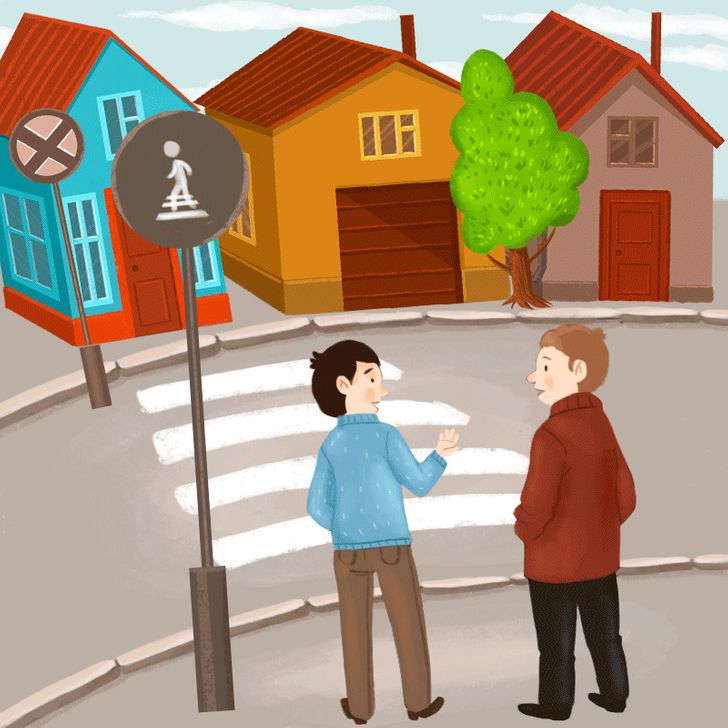
- We don’t notice the huge speed at which Earth is spinning. But if it stopped, says Sten Odenwald from NASA, everything on its surface would be torn off the ground and fly east at speed, eventually falling back down. At the equator, the speed would be the greatest (about 1,000 mph), while closer to the poles it would reach 800 mph.
2. Enormous tidal waves would occur.
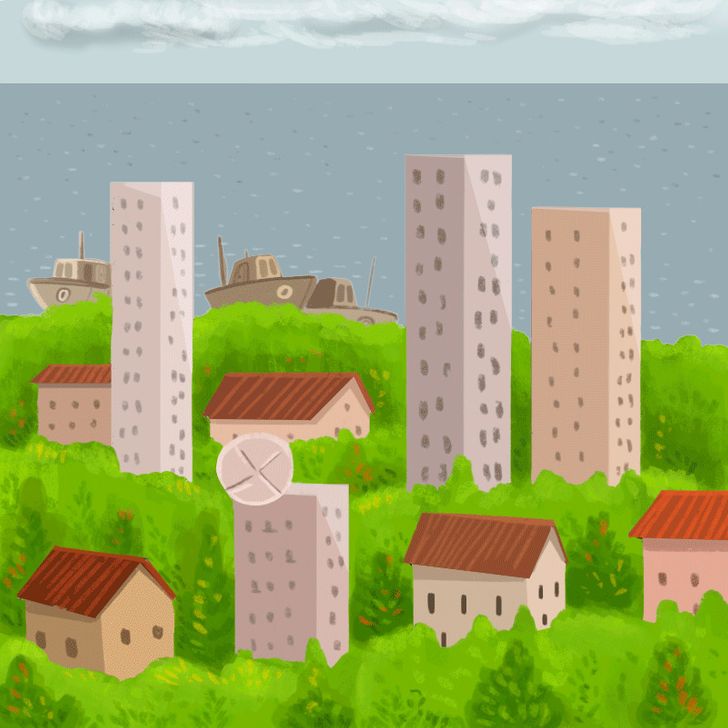
- The power of momentum would make the water in the seas and oceans move to form extremely powerful tsunamis that would go east and clean the coastal cities off the face of Earth.
3. A powerful wind would rise.
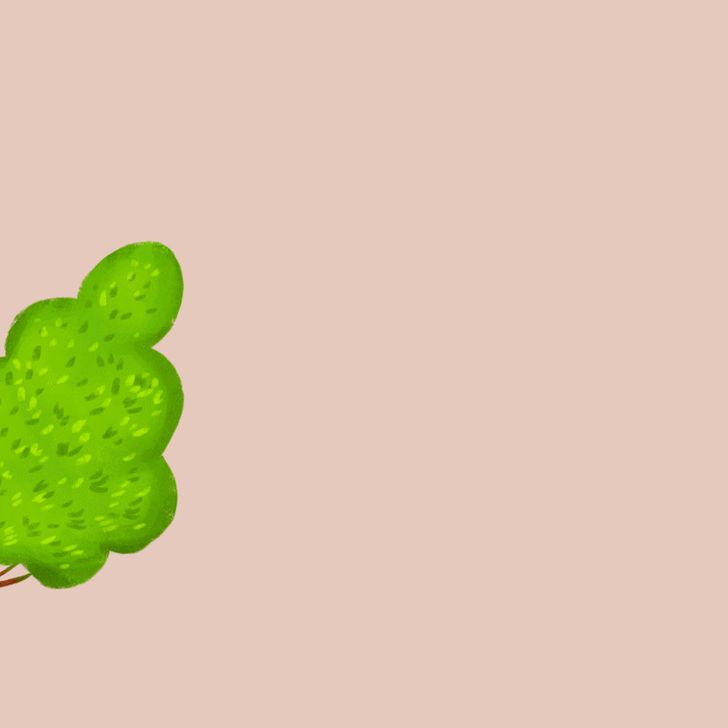
- The atmosphere would continue moving, and its momentum would make it rotate around the planet — probably several times. The starting air flow speed would be enormous: more than 1,100 mph. It’s possible that Earth would lose part of its atmosphere in the action.
4. All water on Earth would collect in 2 oceans, and a new continent would form.
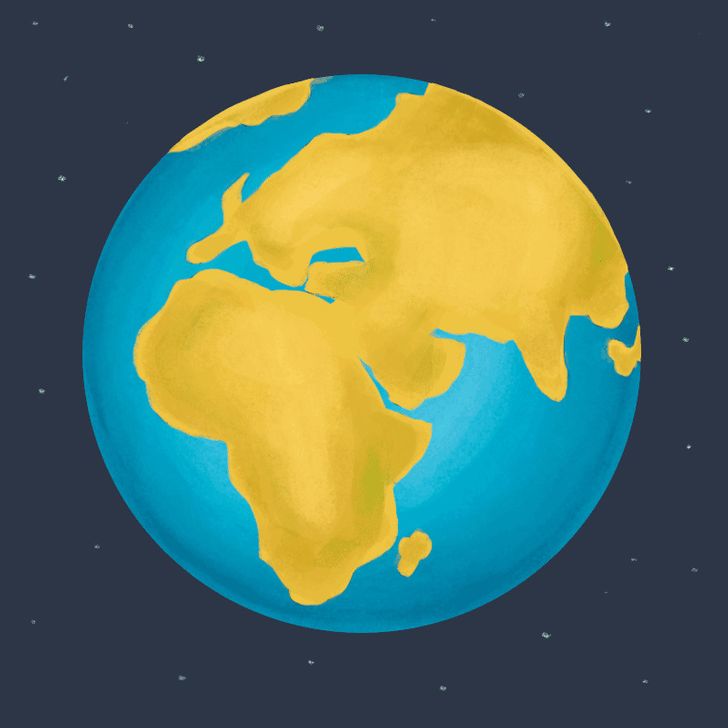
- Water gathers at the equator now due to the centrifugal force. A sudden stop in Earth’s spinning would make the landmasses and water redistribute themselves to form 2 great oceans on both poles. The land on the equator would rise and make a gigantic new continent covering the whole planet through the equator.
5. Volcano eruptions, hurricanes, and earthquakes would begin.
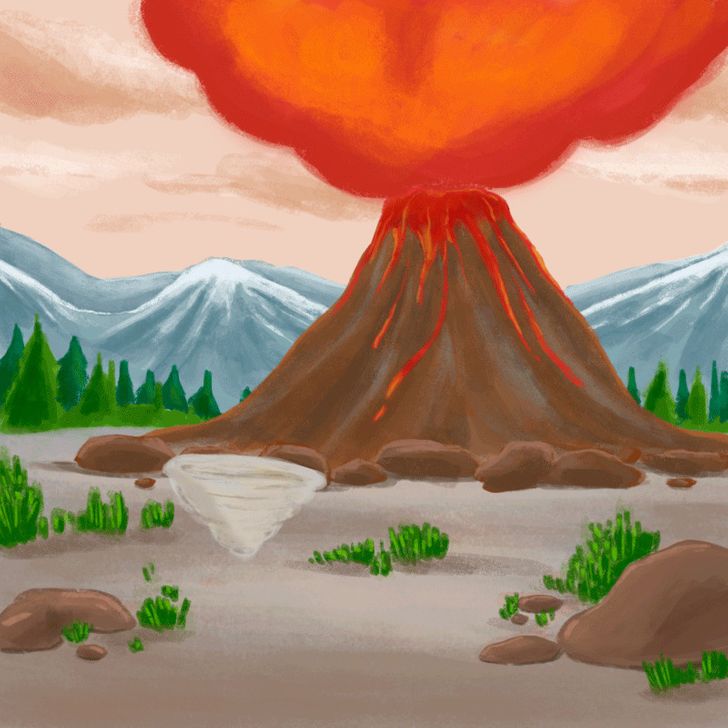
- The huge kinetic force of Earth and its momentum would shake the planet to its core. The result is quite predictable: all-powerful hurricanes, volcanic eruptions, and destructive earthquakes. Everywhere.
6. Earth would transform from a geoid into a sphere.
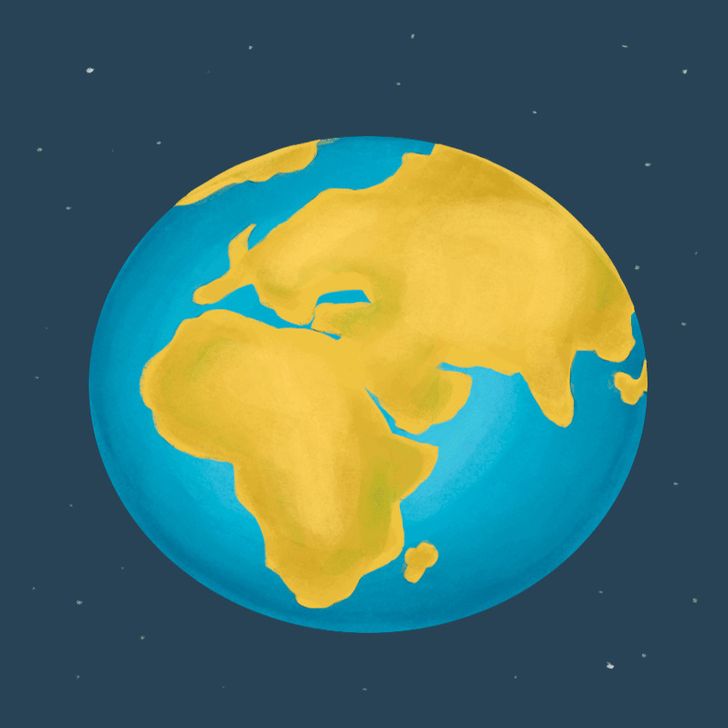
- The geoid shape of Earth is due to its spinning motion. It’s a bit flattened on the poles and a little bulging at the equator (see a lecture by Prof. Etienne Ghys from ENS de Lyon). If the planet stops, its shape will become more spheric.
7. One hemisphere would become hot as a desert while the other would be cold as Antarctic.
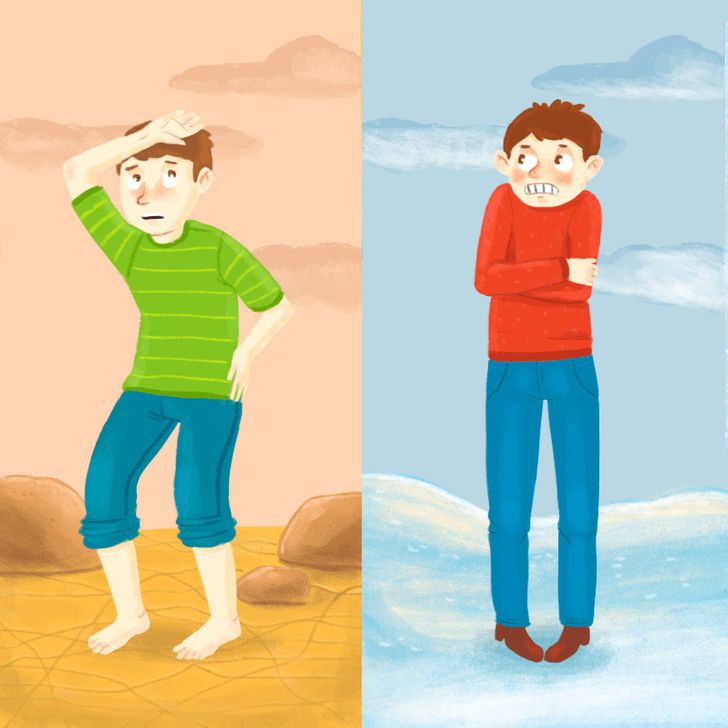
- If Earth continued to make just one turn around the sun, only half of it would be heated, rendering it scorching hot and always brightly lit with the highest temperatures at the equator. The second hemisphere would become a kingdom of eternal night and arctic cold. NASA has another version: Earth would stop turning altogether, and there would be a 6-month day followed by a night of the same length.
8. The magnetic field protecting Earth from dangerous cosmic radiation would disappear.
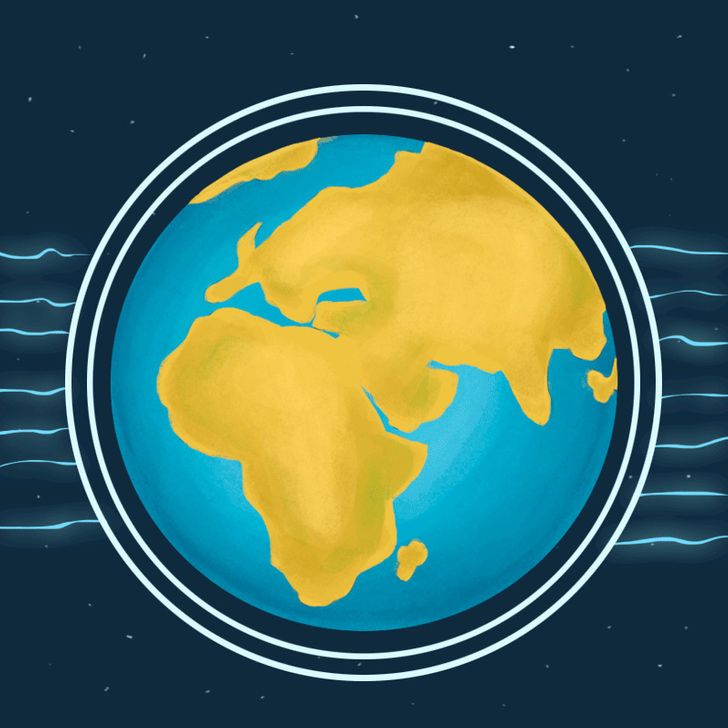
- The magnetic field is basically formed due to the outer core (made mostly of iron) processes and the planet’s spinning motion. If the latter stopped, the magnetic field would also disappear, predicts Sten Odenwald. The field protects us from solar wind: the charged particles from the sun that would destroy every single living being.
9. If people survived, it would only be on the border of heat and cold.
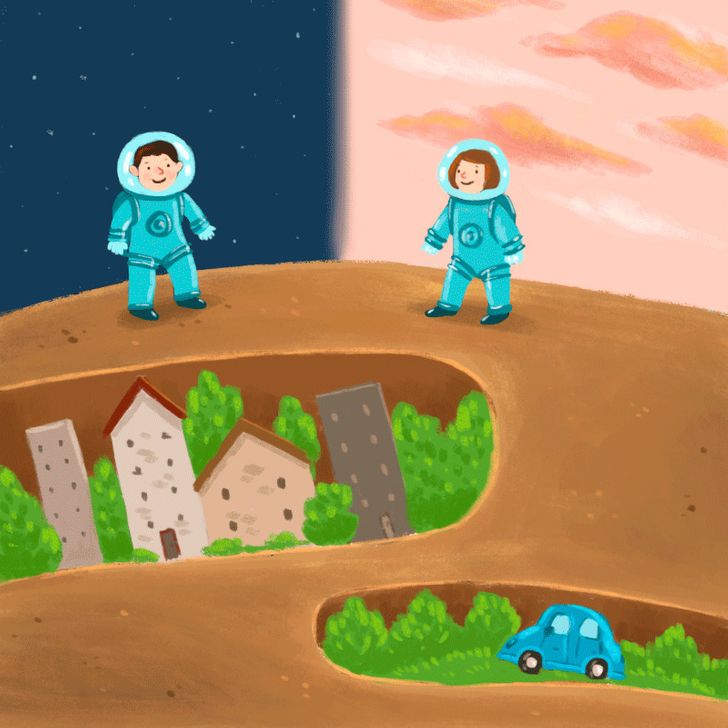
- Mankind would only be able to adapt to the new conditions on the border of night and day. Humans would have to live underground and only go outside in protective suits because of radiation.
10. The Moon would eventually fall onto Earth, but that wouldn’t be soon.
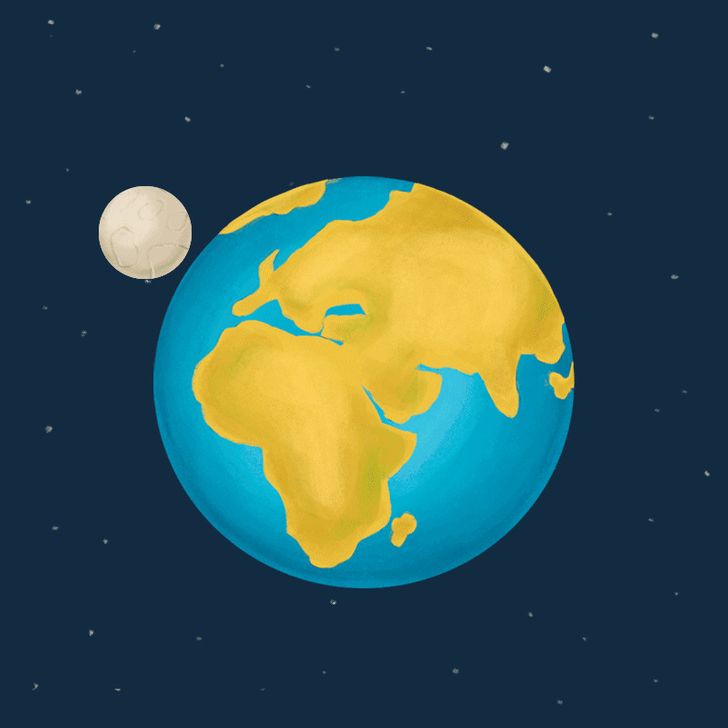
- Prof. Vaughan Pratt from Stanford University says the Moon would gradually slow down too, and its distance from Earth would reduce. In time, it would probably just fall onto our planet.
In fact, Earth really is slowing down. In its youth, it spun much faster: a day lasted only 6 hours. The Moon’s gravity causes ebbs and tides that gradually drop the speed of Earth’s motion. NASA calculated that day length increases by 2.3 ms every 100 years. After billions of years, days would become several times longer, and then our planet will, perhaps, stop completely.
Comments
Related Reads
When My Husband’s Cruelty Peaked, Help Arrived Unexpectedly
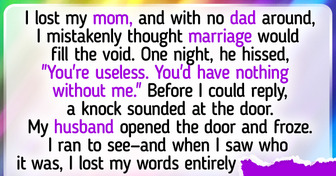
10 True Stories So Disturbing, They Could Be Movie Plots

10 Plot Twists That Prove Life Can Get More Shocking Than Movies

14 Stories of Sudden Realizations That Crushed People’s Realities

10 Family Conflict Stories That Will Leave You Shocked
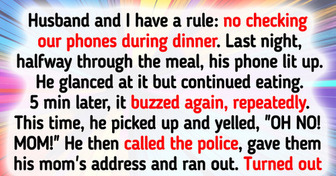
13 People Who Got Caught in Life’s Ironic Twists

15 Family Secrets That Could Top Google Searches

I Excluded My DIL’s Kids From My Family’s Gathering

My MIL Publicly Shamed Me for Bringing a Dish From My Late Mom’s Recipe to Her Family Reunion

I Discovered That My Husband Has Been Cheating on Me — I Planned a Brutal Revenge

I Refused to Let a Family Tragedy Ruin My Wedding Day

14 Work Stories So Wild They Could Be a Netflix Series
